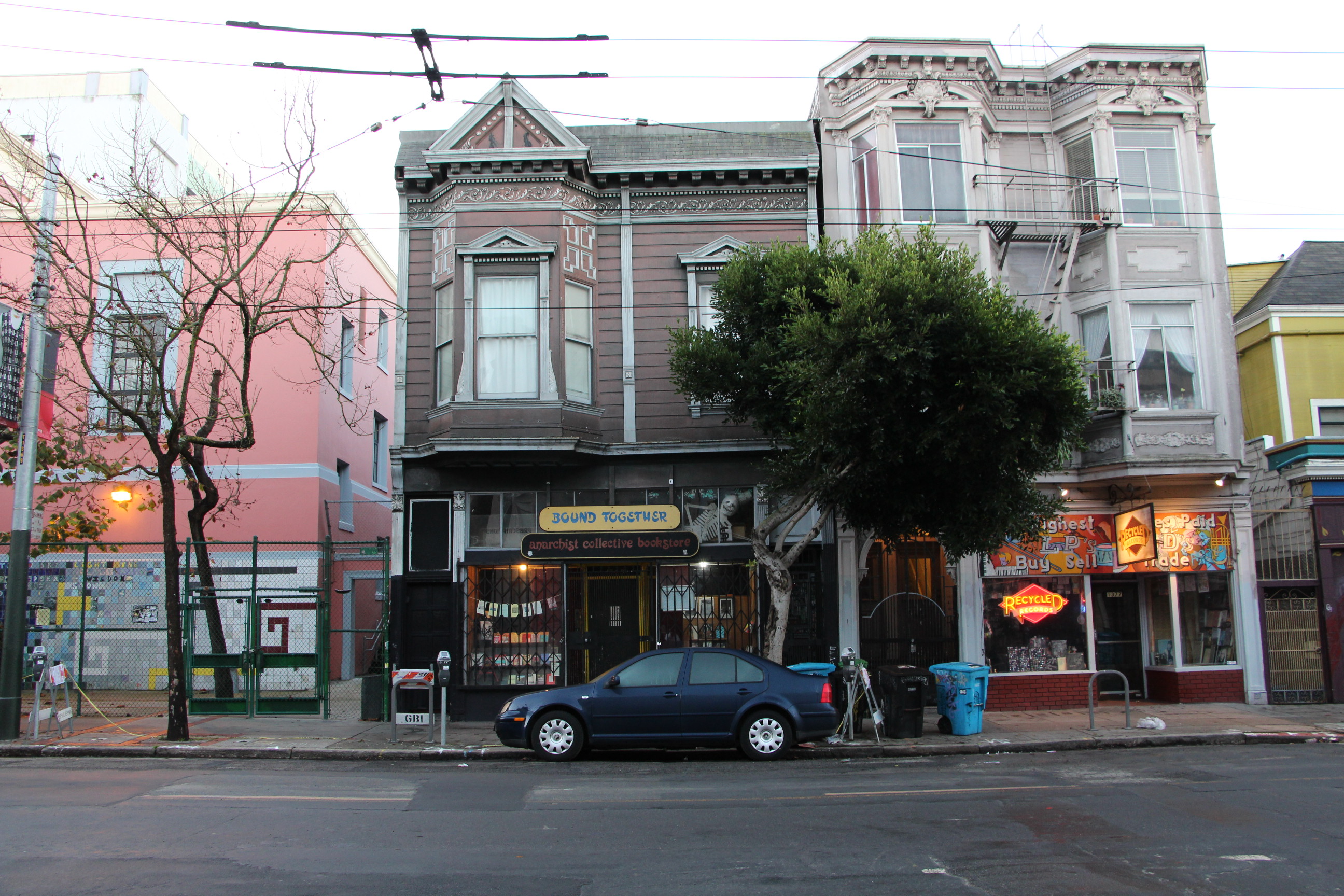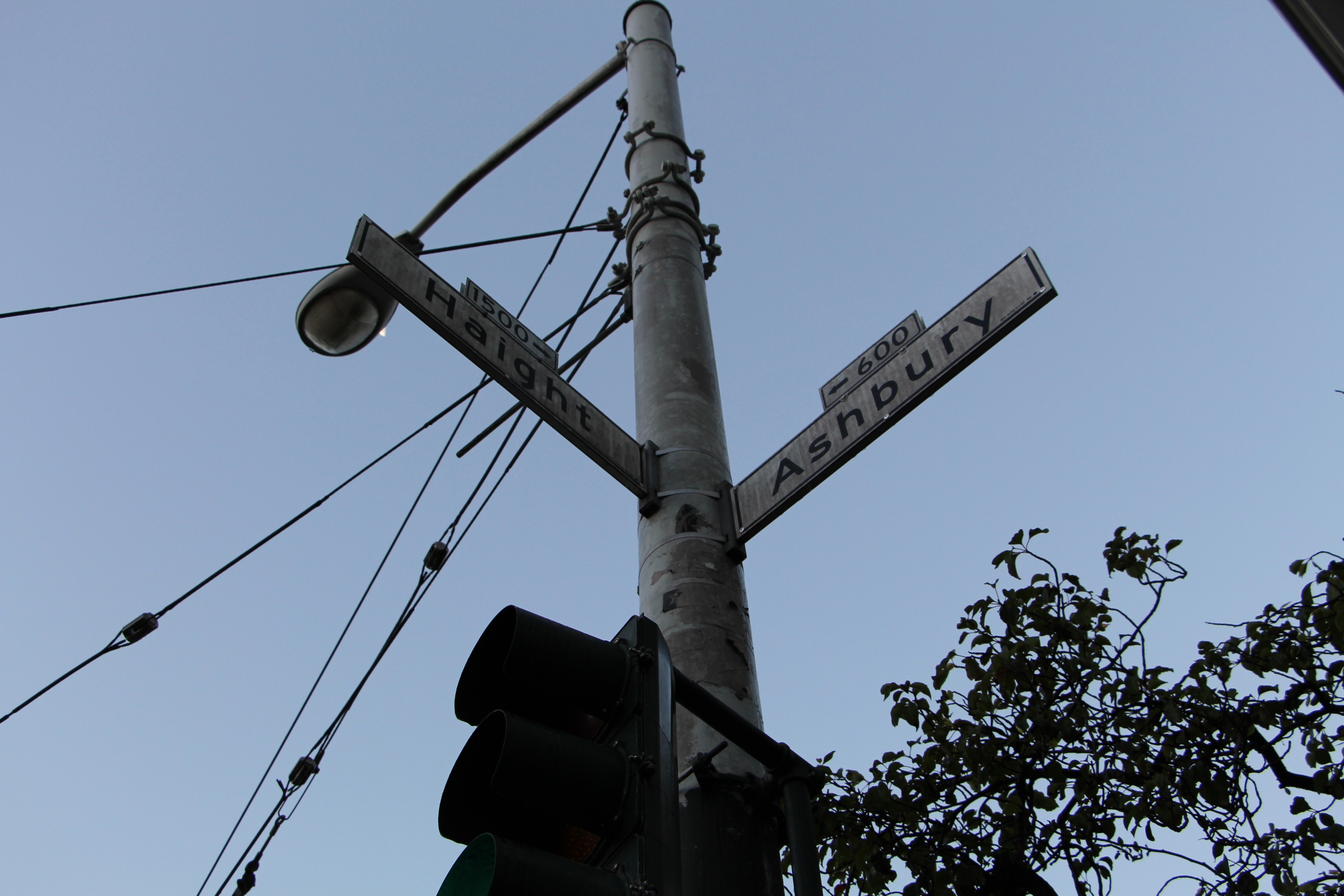
On August 18, 2016 tourists straining for a glimpse of a movie star gathered along Haight Street to watch film crews set up cameras and rigs. This was the last day of filming in the Haight neighborhood of San Francisco for Netflix’s new series Girlboss, based on Sophia Amoruso the bestselling book #Girlboss. The primary location of the shoots was an apartment above San Francisco’s Bound Together Anarchist Collective Bookstore, located at 1369 Haight Street.
The amount of filming of TV shows and movies in San Francisco has increased dramatically since 2014 when Governor Jerry Brown passed bill AB 1839 which made San Francisco a much more attractive location for film projects. The bill raised the yearly tax credit from 150 million to 330 million and removed restrictions on the size of productions. Film crews have already taken advantage of the new bill; more than 19 productions released in 2015 and 2016 shot in San Francisco, as opposed to 10 in 2010 and 2011 and 5 in 2008 and 2009. Blockbuster San Andreas, Golden Globe winner Steve Jobs, and the Netflix TV series Sense8 are only a handful of productions that filmed in San Francisco in 2015 and early 2016.

The rise in film crews traveling to San Francisco to shoot in the picturesque landscape has not gone without complaints. Local residents have voiced their worries about the inconvenience of dealing with shoots which take over streets and affect the daily life of San Franciscans; businesses fret over possible decreases in sales.
Before Girlboss scheduled filming in the Haight they consulted with the Haight Ashbury Merchants Association. “As a board member of the Haight Ashbury Merchants Association I was contacted by May Liang in the city’s Film Office in late July and invited to attend a meeting with the film company who described their schedule,” said said Christin Evans, owner of the Booksmith, a Haight Street business. To alert other businesses and neighbors of the upcoming filming on August 8, 12, and 18, Netflix also “went door to door with leaflets a day or two before the first filming day.”
Sunny Powers, Co-Owner of Jammin’ On Haight, a clothing store across the street from the filming location, was unhappy with how Netflix handled interactions with Haight Street businesses. She said, “I found out about the filming through a neighbor. When I got the filming notice it stated that they would be filming in my shop, even though no one had ever reached out about it.”
A survey compiled by Next Steps Marketing in coordination with FilmSF collected data on the opinions of 1,300 residents about the effects of filming in San Francisco. 90% of those surveyed reported they enjoyed seeing the sights of San Francisco on the big screen. However, 41% responded that they had been negatively affected by filming in San Francisco. The majority of complaints were due to street closures and restricted parking. “What isn’t helpful is when a production shuts downs the whole street, takes all the parking and disrupts business for hours,” said Evans.

Although some businesses were unhappy with the decision to let Girlboss film in the Haight, Evans and the Haight Ashbury Merchants Association believed the benefits would outweigh the inconveniences. Evans remarked, “The plan was to have the characters entering local clothing stores and showing off different parts of Haight street. The thought of our members was that a short term impact would be worth it for the free publicity. Unfortunately I don’t think we’ll see the benefits of that exposure because the lead actress was hospitalized during filming and they are going to reschedule those scenes in stores in LA.”
Powers ultimately agreed to let Girlboss film within her business, for a price. “[The crew of Girlboss] did end up filming in my shop after they received my permission, paid the shop for our time, and donated money to the local non-profit I am part of, Taking it to the Streets,” said Powers. However, many businesses do not receive the same compensation when allowing film crews to shoot within their premises. “I don’t think [other businesses] got the money,” commented Powers. “I said no to filming several times until it was on the terms that I wanted. Most of these film companies, like Netflix, have money… you’ve just got to work it.”
Powers commented on the best method to maintain positive relationships between film companies and businesses, “Yes, [filming] can negatively affect businesses, that is why [film companies] should be paying the businesses for the time on the street, any damage to the street and contributing to any aspects of the community that need help. If they can take their negative effect and turn it into a positive, then everyone will be happy.”





